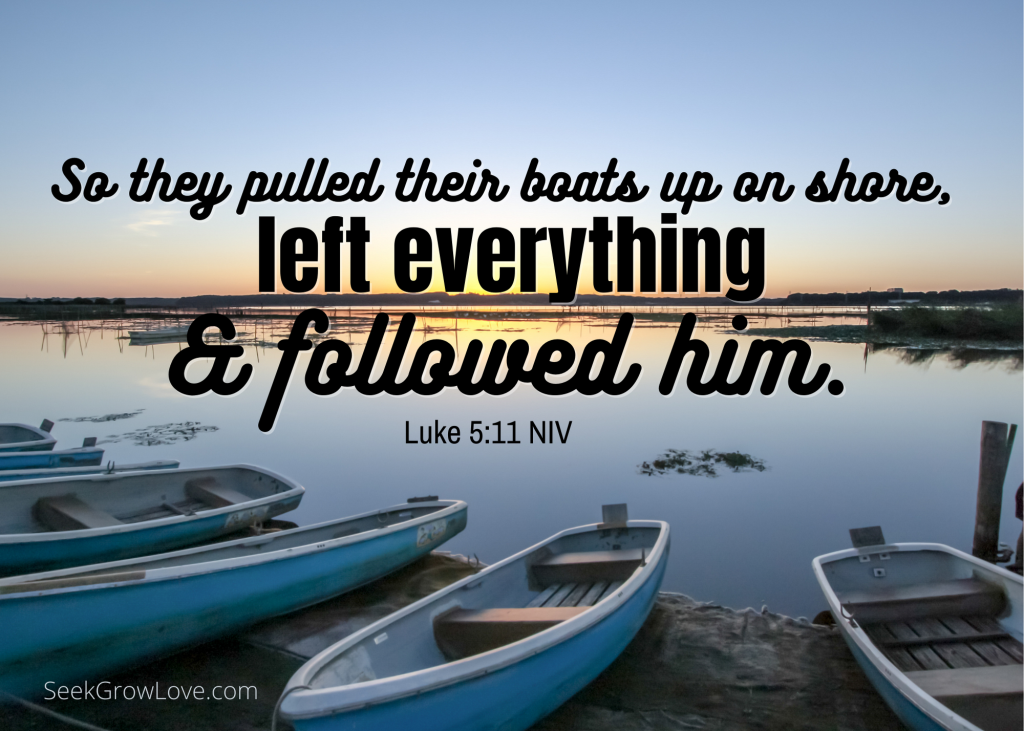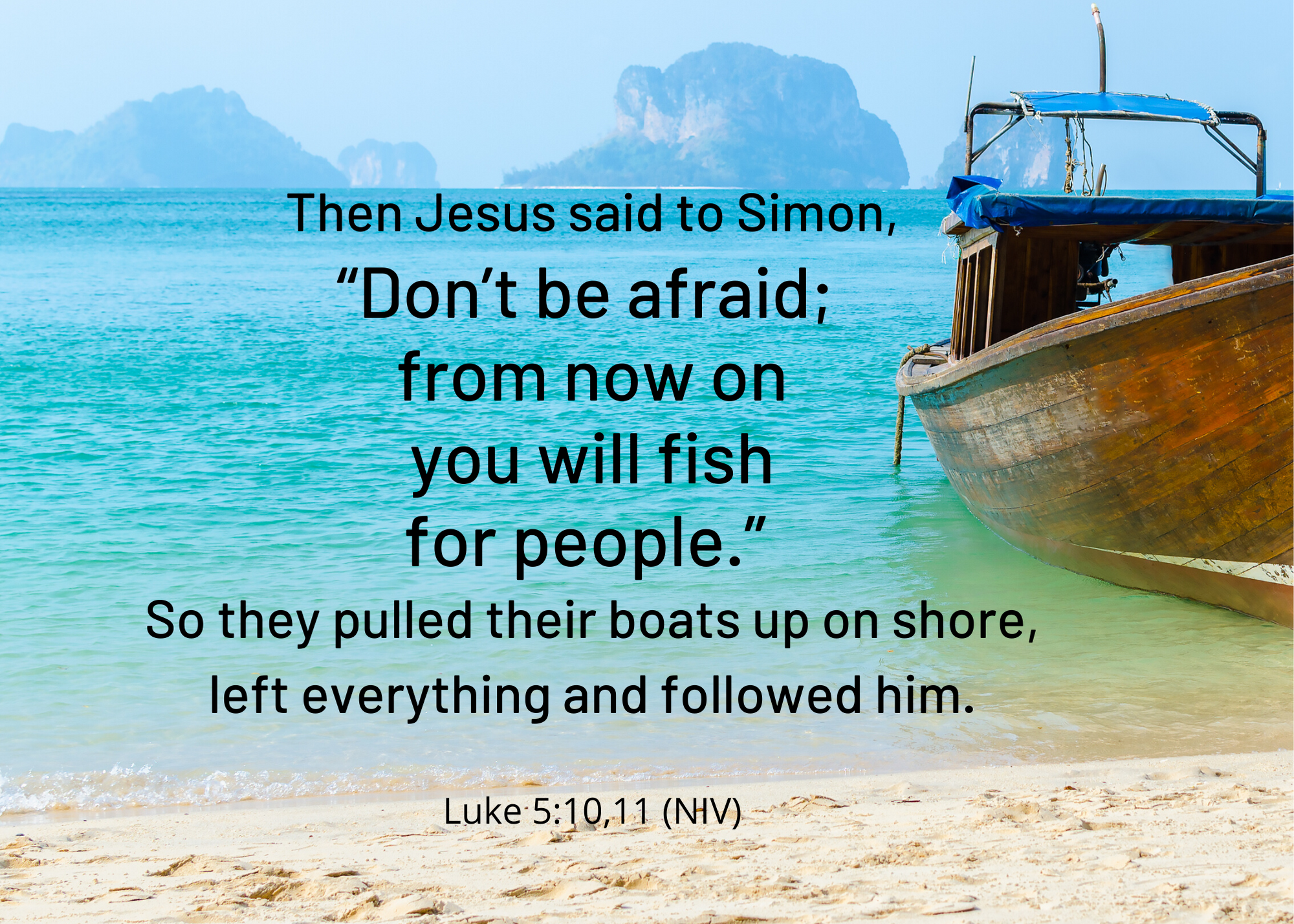
Luke 5
In this time of year, the wider church celebrates Lent. In this period leading up to Easter, we take time to examine ourselves, our sins, our motives, our hearts and souls, and recognize that it was for our sins that Christ died, not only to free us but to change us. While the reading in Numbers is very important, and I am glad you are reading the Old Testament, I want us to focus on Christ this week and his life as portrayed by Luke.
There are two stories in Luke 5 to which I want you to pay particular attention. Let’s look first at Luke 5:1-11. Jesus is already an established teacher, a rabbi, and has a ministry going. He is probably on the lookout for disciples. Disciples were usually chosen from a core group of aspiring, promising young men. They would have excelled at learning the language, would be able to read the Torah, memorize the Torah, study and debate the Torah. In the learning institutions, those who were not promising, or who had to work with their parents to feed the family, were sent home to learn the family trade. So Jesus meets up with a guy named Simon. We might recognize him more from his nickname, Peter. Simon is a fisherman, who has his lot in life, knows what his station is. He KNOWS he’s not meant to be a rabbi’s disciple. He KNOWS he wasn’t smart enough or rich enough to make the cut. But Jesus isn’t looking for the richest or the smartest. Jesus says “cast out your net” and Simon says “because you say so.” They’d been fishing all night. They ain’t got nuthin’, as we say in the South. (SC represent) These good ol’ country boys know what they are doing, but Simon likes Jesus, trusts him, and does what he says.
And that is what Jesus is looking for.
And there is a miracle.
So many fish the nets tore, and the ships sank, and it took two crews.
That’s a lotta fish.
Simon, James, and John were all amazed and astonished, and Jesus said “You will now fish for people.”
And they pulled up their boats.
Left everything.
And followed him.
Later on in the chapter, we read about Levi the tax collector. We may know him better by the name Matthew, who we think is the same guy. Now tax collectors were hated. Jews despised by their brothers and sisters because they were thought of as traitors. They were Jews, collecting money from other Jews for Rome, the occupying military force. To get rich, they would overcharge the Jews and keep the rest, which was legal, but tantamount to stealing. And this traitorous thief is sitting in his tax booth. Jesus sees this guy and says two words to him : “Follow me”
Levi followed him.
Left everything.
Right there in the booth.
Levi is amazed and astonished that a holy rabbi would look for him, would choose him to follow, would send him out to work.
A whole lotta tax collectors and sinners heard this good news that God’s kingdom was open to them. Jesus said that he came to call the sick, and heal them. He healed the sick there that night, and it was miraculous.
Jesus is looking for you.
He is seeking those who will listen, whether it is to let down a net or to let down your guard. The call will always be “Follow me.” If you listen, he will accept you. We know we aren’t rich enough. He KNOWS we are. (Colossians 1:27) We know we aren’t smart enough. He KNOWS we are. (1 Corinthians 1:25) We know we aren’t good enough. He KNOWS we are. (2 Corinthians 5:21)
He says to you today: “Follow me.” Pull up the boat, get out of the booth. Leave EVERYTHING behind. And follow him.
-Jake Ballard
Read or listen to today’s Bible reading at BibleGateway.com – Numbers 29-30 and Luke 5

